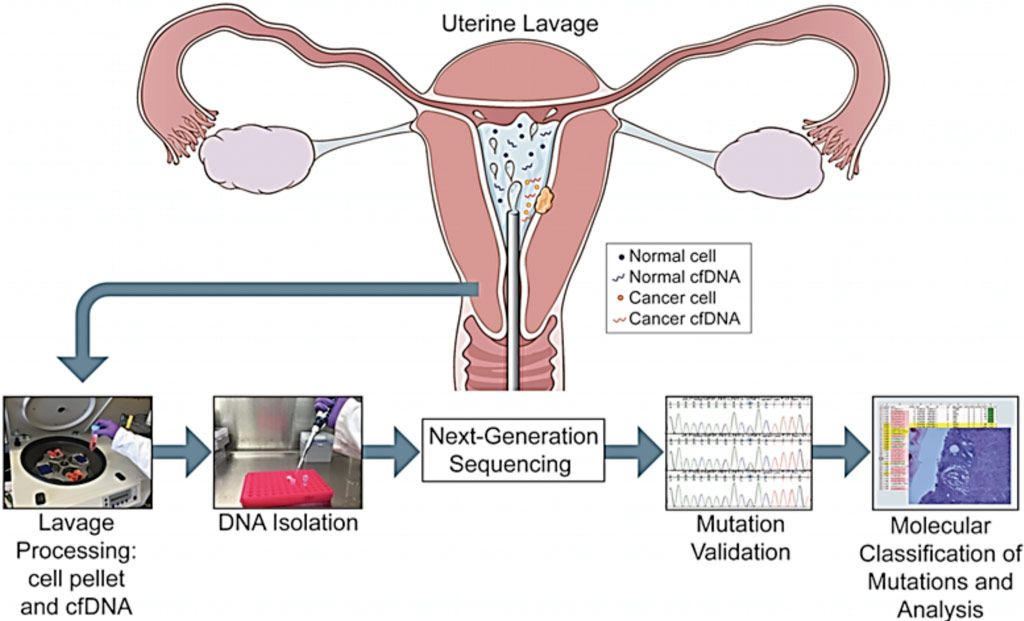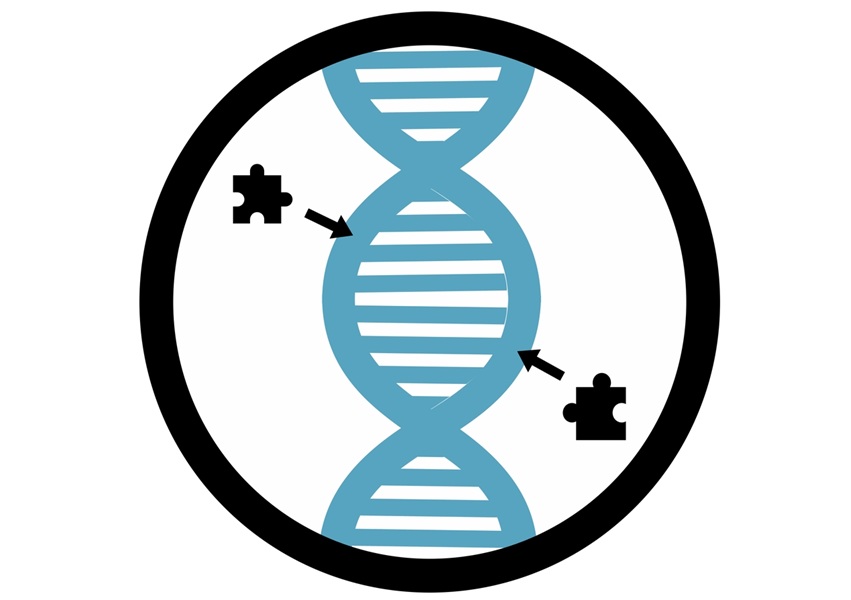Endometrial Cancer Mutations Detected in Uterine Lavage Fluid
By LabMedica International staff writers
Posted on 11 Jan 2017
Endometrial cancer is the most common gynecologic malignancy, and its incidence and associated mortality are increasing and despite the immediate need to detect these cancers at an earlier stage, there is no effective screening methodology or protocol for endometrial cancer.Posted on 11 Jan 2017
The comprehensive, genomics-based analysis of endometrial cancer has led to the use of ultra-deep, targeted gene sequencing that could detect somatic mutations in uterine lavage fluid obtained from women undergoing hysteroscopy as a means of molecular screening and diagnosis.

Image: Overview of the study pipeline beginning with collection of uterine lavage fluid at the initiation of hysteroscopy (Photo courtesy of Icahn School of Medicine at Mount Sinai).
A team of scientists at the Icahn School of Medicine at Mount Sinai (New York, NY, USA) and their colleagues collected uterine lavage and paired blood samples from 107 consecutive patients who were undergoing hysteroscopy and curettage for diagnostic evaluation from this single-institution study. The lavage fluid was separated into cellular and acellular fractions by centrifugation. Cellular and cell-free DNA (cfDNA) were isolated from each lavage.
Two targeted next-generation sequencing (NGS) gene panels, one composed of 56 genes and the other of 12 genes, were used for ultra-deep sequencing. To rule out potential NGS-based errors, orthogonal mutation validation was performed using digital polymerase chain reaction (PCR) and Sanger sequencing. In parallel to the genetic study, the hysteroscopy samples were analyzed separately from the advanced genetic workflow using traditional gold-standard classic histopathology methods. DNA sample quantity and integrity were assessed with an ALU repeat qPCR assay (Swift Biosciences, Ann Arbor, MI, USA).
In this prospective study of 107 women, seven were found to have endometrial cancer based upon histopathological evidence and all seven, even those with only microscopic evidence of cancer, had significant cancer-driver gene mutations detected in their uterine lavage fluid, including both the cellular and cell free DNA. Surprisingly, 51 women with no histopathological evidence of cancer also carried cancer-driver mutations in the cells or the cell free DNA from their lavage fluid.
John A. Martignetti, MD, PhD, a professor of Genetics and Genomic Sciences, and a senior author of the study said, “Since a uterine lavage can be easily and quickly performed in a physician's office, our initial idea was that this molecular approach could lead to early detection of pre-cancerous and cancerous conditions of the uterus.” The study was published on December 27, 2016, in the journal Public Library of Science Medicine.
Related Links:
Icahn School of Medicine at Mount Sinai
Swift Biosciences







 Analyzer.jpg)





